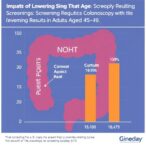
A groundbreaking clinical trial has revealed promising evidence that a high-fiber, plant-based diet might play a pivotal role in delaying the progression of precursor conditions leading to multiple myeloma, the second most prevalent form of blood cancer. This diet intervention, both feasible and well-received among participants, demonstrated notable improvements in metabolic, immunologic, and microbiome biomarkers, illuminating new avenues for cancer prevention and control anchored in nutritional science.
Multiple myeloma is a malignancy arising from plasma cells in the bone marrow, and its development is often preceded by asymptomatic, precancerous states characterized by abnormal plasma cell proliferation. Epidemiological data have linked obesity, poor dietary patterns, and dysbiosis of the gut microbiota with heightened risk of transitioning from these precursor states to overt myeloma. Addressing these modifiable risk factors has become a critical focus for preventative strategies against hematologic malignancies.
“Our research underscores the critical importance of dietary quality in the earliest stages of disease,” explained Francesca Castro, clinical research dietitian at Memorial Sloan Kettering Cancer Center. By intervening during these precursor phases, the study suggests that diet can not only be a feasible lifestyle modification but also a potent tool in altering disease trajectory. These insights were slated for presentation at the prestigious NUTRITION 2025 conference held in Orlando, underscoring their relevance to the broader nutritional research community.
.adsslot_GquxiwU4oX{width:728px !important;height:90px !important;}
@media(max-width:1199px){ .adsslot_GquxiwU4oX{width:468px !important;height:60px !important;}
}
@media(max-width:767px){ .adsslot_GquxiwU4oX{width:320px !important;height:50px !important;}
}
ADVERTISEMENT
Traditional research on conditions preceding myeloma often concentrates on genetic mutations and immune dysregulation, yet the role of lifestyle factors, particularly diet, remains underexplored. Urvi A. Shah, MD, principal investigator and physician scientist also at Memorial Sloan Kettering, emphasized that nutrition represents a unique sphere of patient agency, offering a tangible method by which individuals can potentially influence their disease outcomes in the face of otherwise uncontrollable biological variables.
The NUTRIVENTION Trials pilot study enrolled 20 patients exhibiting both obesity and established precursor conditions for multiple myeloma. Participants adhered to a regimented 12-week intervention feeding period inclusive exclusively of high-fiber, plant-based meals, supplemented by 24 weeks of personalized nutritional counseling and ongoing 52-week monitoring. Such a comprehensive intervention aimed to effect profound and sustained dietary behavior change.
The prescribed dietary regimen prioritized consumption of whole plant-based foods—fruits, vegetables, legumes, nuts, seeds, and whole grains—while excluding animal products, refined grains, added sugars, and ultraprocessed foods. Adherence to this nutritional profile was rigorous, leading to a remarkable increase in plant-based, high-fiber caloric intake from a mere 20% baseline to an impressive 91% by the intervention’s conclusion, reflecting true behavioral shift and compliance.
Remarkably, participants achieved a median body mass index (BMI) reduction of 7% at 12 weeks, a statistically and clinically significant improvement maintained at one year. Importantly, two individuals demonstrated deceleration in disease progression metrics, and the remaining subjects exhibited disease stability, suggesting potential clinical benefit beyond mere weight loss.
Biometrically, the study unveiled significant ameliorations in insulin resistance, lipid profiles, systemic inflammation markers, and the intricate ecology of gut microbiota diversity and composition. These physiological adjustments indicate enhanced metabolic health and reduced inflammatory milieu, both of which are crucial in mitigating cancer risk and progression, reinforcing the plausibility of diet as a modulator of oncogenic processes.
Diversity in participant demographics bestows robustness and generalizability to the findings. Dr. Shah highlighted that the study’s multifaceted evaluation encompassing immune function and metabolic biomarkers supports hypotheses that such dietary patterns could concurrently diminish risks for cardiovascular disease, type 2 diabetes, and other metabolic syndromes often comorbid with cancer risk.
One of the study’s broader implications involves addressing the pervasive deficiency in dietary fiber intake within the American population, which averages well below the recommended 28 grams per day set forth by the US Dietary Guidelines. Incremental dietary adaptations, such as substituting refined carbohydrates with whole grains or incorporating fruit servings, represent pragmatic strategies for increasing fiber consumption with far-reaching health benefits.
Castro assuaged fears of complexity associated with dietary changes by advocating for simple, achievable modifications. She articulated that incremental swaps—adding a piece of fruit during meals or replacing white rice with brown rice—could cumulatively lead to reduced cancer risk and holistic health enhancement, signaling an accessible public health message to a wide audience.
Building on these promising pilot data, researchers are enrolling more extensive cohorts in ongoing NUTRIVENTION Trials to dissect diet’s influence on the gut microbiome in comparison to supplementation and to explore the therapeutic potential across other hematologic precursor disorders such as clonal hematopoiesis. This expanding research frontier integrates nutritional science with oncology and microbiology, aiming to elucidate complex host-diet interactions.
While these preliminary data herald exciting possibilities, it is important to recognize that findings presented at NUTRITION 2025 have undergone expert committee review but not the full peer-review process typical of scientific publications. Consequently, cautious interpretation is warranted until peer-reviewed validation solidifies these conclusions into clinical practice guidelines.
The study affirms a paradigm shift in cancer prevention discourse, elevating dietary modulation from adjunct consideration to a principal target in intercepting malignancy at its inception. As dietary science advances, harnessing the multifactorial benefits of plant-based, fiber-rich nutrition may well revolutionize preventive oncology, empowering patients to engage proactively in their health trajectories.
Subject of Research: Nutritional intervention targeting precursor conditions of multiple myeloma using a high-fiber, plant-based diet.
Article Title: [Not Provided]
News Publication Date: [Not Provided]
Web References:
NUTRITION 2025 Conference: https://nutrition.org/meeting/
Castro and Shah abstract: https://www.dropbox.com/scl/fi/7cjrjcrree3078whricg2/Castro-and-Shah-abstract.pdf
Presentation details: https://cdmcd.co/bR6Xd7
Image Credits: Francesca Castro, Memorial Sloan Kettering Cancer Center
Keywords: Multiple myeloma, myeloma, cancer, blood cancer, nutrition, diets, dietary counseling
Tags: clinical trials in nutritiondietary interventions for blood cancerdietary quality and disease progressionhigh-fiber plant-based dietimmunologic factors in myelomametabolic biomarkers in cancermicrobiome and cancer riskmodifiable risk factors for cancermultiple myeloma preventionnutritional science in cancerobesity and myeloma riskprecursor conditions of myeloma



